- Home
- Penny Jordan
Ruthless Passion Page 19
Ruthless Passion Read online
Page 19
He stared at her, his heartbeat suddenly accelerating, his body reacting to the threat by going into an adrenalin-boosted fight mode, but Karen wouldn’t let him speak.
Their marriage had been failing for a long time, she told him … in fact, she should never have married him in the first place. Should never have given up her career in New York.
Saul listened in silence as she told him how she felt about the way she had been forced to abandon her own career to bring up his children, the way she had been forced to stay in the background, a stay-at-home wife, while he neglected her and their children in favour of his career. There was, she told him, someone else. Someone who was more than prepared to accept that she had other needs beyond and above those of merely being a wife and a mother … someone with whom the children had already bonded in a way they had never bonded with him.
There was to be no fuss, no squabbling, she told him. That would be bad for the children. The children he had proved were not important to him by the way he had left them and her when he took up the job in London, a job she had pleaded with him not to take. Financially there need be no problems. He … her lover was more than prepared to support both her and the children. The Westchester house could be sold and the proceeds split between them.
‘You can keep the damned house,’ Saul had told her savagely when he was at last allowed to speak.
Later that night, alone and wide awake in the anonymity of his motel room, he reflected helplessly on all that he could and should have said, and cursed himself for his ineptitude.
He spent Christmas Day alone in his motel room, asking himself over and over again where he had gone wrong. He had done as his father had told him, hadn’t he? He had worked … achieved … succeeded.
Karen could not be dissuaded from going ahead with the divorce and in the end, rather than upset the children, who, she told him cruelly and clinically, did not really consider him to be their father at all, he gave way.
She and ‘Uncle Richard’ were married almost as soon as the divorce was final. Under pressure from Karen’s lawyers, Saul had agreed not to demand access to the children. It would only upset and distress them, Karen had told him, pointing out that he rarely saw them anyway, and for their sakes, remembering how they had turned away from him at Christmas, how they had rejected him, Saul felt bound to agree.
Richard had his own business. A year after he and Karen were married he went bankrupt. Karen got in touch with Saul, reminding him that the children were his. Saul agreed to support them, but Karen still refused to allow him any real contact with them. It would only upset them, she said, and during the one meeting his lawyers managed to arrange for him to see them they were so antagonistically aggressive towards him that he had to agree, and, besides, he was rarely in the States these days.
Ironically, the British arm of Davidson’s was thriving and succeeding way beyond his original forecasts. He was commonly and sometimes enviously known as Sir Alex’s ‘blue-eyed boy’.
Over the years he had discreet sexual liaisons with several women, but made it plain to all of them right from the start that he was not looking for any kind of emotional commitment and that he could most certainly not give one. None of them believed him … at first. The business was his life, its cut and thrust life’s elixir. He neither wanted nor needed anything else.
And then, totally out of the blue, Karen and Richard moved to Britain. Richard was working for a West-Coast-based computer firm, which had opened an office in the south of England. He was transferred there with certain other key staff.
Saul knew of this because he was still financially supporting his children, and of course Karen had to write to him requesting him to redirect his monthly cheques.
‘Why don’t you try to make some kind of contact with them?’ Christie had suggested to him when he’d told her what had happened. ‘They are, after all, your children, Saul.’
‘Not as far as they’re concerned,’ he’d told her bluntly, but whenever he thought about it, which he tried not to do too often, there was an ache inside him, a hunger … the same kind of ache and hunger he had known as a child. He knew that people found him intimidating and that they withdrew from him, all except Cathy.
Cathy loved him. Right from being a small child she had loved him. Running up to him whenever he could make time to visit, holding out her arms to him, demanding to be picked up and cuddled. And he loved her too, loved her with an intensity that sometimes confused and disturbed him. How could he love this child of his sister’s so much when, as his ex-wife had so bitterly told him, he had not loved his own children? But he had loved them. When they were born … He could still remember so vividly how he had felt the first time he’d seen Josephine, the first time he’d picked her up in the hospital.
A nurse had come bustling in, he remembered, snatching the baby out of his arms, telling him that he must not touch her.
Karen had done much the same once Josephine was at home. He remembered once, when Karen had gone out shopping, Josephine had been crying. He had picked her up and had realised she needed changing. He had done his best, but his hands were large and the baby so tiny, and when she lay there, looking up at him so trustingly, he had felt so clumsy, so incompetent and yet at the same time so proud, so full of love.
What on earth did he think he was doing? Karen had demanded, pushing him out of the way. Josephine had immediately burst into tears, causing Karen to pick her up and croon to her, ‘Never mind, darling. Mummy’s here now … Mummy’s here.’ And Saul had left the nursery, knowing that somehow he had transgressed … that he was not needed.
With Cathy, though, it was different. From the time she was a baby she had crowed with joy when Christie, weary from the long hours she spent at the hospital, had picked her up and thrust her into Saul’s arms, telling him, ‘Here, Saul, you hold her, otherwise she’s going to think the world is completely made up of females, and I don’t want that for her.’
Unlike Karen, Christie seemed to have no qualms at all about leaving her baby with him, and when Cathy was wet he changed her nappy for her and received a big beam of delight and a crow of pleasure in return. He found that he was spending more and more of his spare time with his sister and her child.
And then their father died. At the funeral Saul stood apart from the others, trying to come to terms with his confused feelings. He felt sorrow and pain, of course, and guilt as well … guilt because somehow he still had the feeling of having failed, of somehow not having met enough targets, of not having done enough to prove to his father that he had listened to everything he had told him, of not having done enough to make it up to him because he had not got all he had wanted out of life. And then shamingly allied to that emotion was a frightening well of anger.
Anger against his father! His father, who had loved him. His father, who had only wanted the best for him … the very best. His father, who had brought him up to know how important it was to be a man, how heavy a man’s responsibilities were and how strong he needed to be to carry them …
* * *
With Karen and Richard living in England, Saul made sporadic attempts to see his children. Sometimes Karen agreed, sometimes she did not, but what was constant was that the visits were never a success. Neither child seemed able to talk to him. Of the two of them, Josephine was the more antagonistic and aggressive. She seemed to hate him, whereas Thomas simply shut him out.
Thomas was now at boarding-school, the fees paid by Saul, of course, while Josephine attended a private local girls’ day school. Both of them were doing well. They had to. After all, one day they would have to support themselves, Karen commented bitterly.
She had, Saul noticed, become a very bitter woman, who seemed to lose no opportunity of telling them her marriage to him had contributed to the destruction of her own career plans and hopes.
Saul said nothing. After all, what was there to say? He had no regrets about the divorce, but when it came to his children … Every time he saw them his sense of failure in
creased. He found that sometimes he was actually avoiding having to see them because of that guilt.
But Davidson’s continued to thrive. At Saul’s instigation they had taken over several weaker rivals, deadly, precise take-overs that stripped the fallen rivals of their assets and which left their managements stunned and disbelieving. But still Sir Alex remained in control; still Saul felt that the final prize, the ultimate success was being withheld from him.
And then, the Christmas after his thirty-ninth birthday, Cathy had looked across at him, her eyes alight with love and excitement, her face glowing with the happy pleasure of the day, and she had said to him, ‘I’m so happy, Uncle Saul. Are you?’
He had started to assent automatically, but for some reason he had stopped; for some reason the simple untidy warmth of his sister’s sitting-room had momentarily dimmed and he was once again standing listening to his father telling him how important it was to succeed, watching with pain and apprehension as he saw the unhappiness in the older man’s eyes, and then, as he blinked away that vision, he had another one: the hallway of the Westchester house, the tree with its red and gold satin bows, the set, bitter face of his ex-wife, the taut, withdrawn expression of his daughter and the lack of recognition in his young son, and he had experienced a sensation within himself that left him bereft of words, a spasm of pain contorting his face so that Christie, who was watching him, had asked anxiously if he was feeling ill.
Her cooking was a joke between them, and he had complained last Christmas that her roast potatoes were more like cannon balls, more for Cathy’s benefit than anything else. She loved it when he teased her mother and was mocked in return.
‘No. It’s nothing,’ he told her and he told himself the same, but after that nothing was the same. It was as though his whole world had somehow subtly shifted its axis so that he was looking at things from an unfamiliar and often unwelcome angle. He found himself questioning things he had never questioned … he found that he was aware of feelings, emotions that he didn’t want to be aware of … he lost track of what was going on at an important meeting. He couldn’t sleep; he was irritable with his staff; he was frighteningly aware that somehow his life was slipping out of his own control, and that knowledge generated further fear, further anger, terror almost, as he fought desperately to regain all that he felt he was in danger of losing.
He was afraid … more afraid than he could ever remember being in his entire life; more afraid than he had been when as a child he had looked into his father’s eyes and seen the pain there, more afraid than he had been when he’d failed his A levels, more afraid than he had been when he’d held his small daughter, more afraid than when Karen had asked him for a divorce; and yet he could not analyse why he should experience that fear, or what there was to fear.
He had everything he had ever wanted, didn’t he? All right, so there had been some sacrifices, but he wasn’t the only man to be divorced and lose contact with his children … that was what happened these days. It was sad, but it was a fact of life. He was successful. Sir Alex had intimated six months ago that he was virtually ready to step down. There was no one else on the board to challenge Saul’s right to step into his shoes. So what was happening to him? Why, when he woke up in the morning, did he have the sour taste of bile in his mouth? Why, when he looked in the mirror, did he experience revulsion? Why, when he pictured the faces of his children, did he feel such violence … such anger?
Stress, the doctors said. Stress! The ultimate accolade … the ultimate acknowledgement that he had made it. What successful businessman did not know the meaning of that word, did not thrive on the adrenalin-based narcotic it produced? But his stress wasn’t like that. His stress did not fuel him; it destroyed him … it was as though in some way his own body, his own senses, his own perceptions had turned on him and attacked him.
And then Sir Alex had told him that he wanted him to use his friendship with Dan Harper to enable them to take over his company in an asset-stripping exercise which would have left it as picked clean of every ounce of flesh as though carrion had devoured it, and something within him, something he had hitherto not known existed, refused to let him do it.
For the first time in his adult life he experienced the realisation that his brain could not always have domination over his emotions. That awareness had produced a shock effect as cataclysmic to him as a complete nervous breakdown might have been to someone else.
It had been weeks, months almost, before he had been able to accept what was happening to him, and since then he had been experiencing the most acutely painful kind of self-analysis and self-inspection he had ever endured.
He had looked at himself for the first time in years; had seen himself not in the image cast for him by his father, and the long shadow of his father beside that image dominating it, but as the man he actually was, an individual with a right to his own feelings and needs, and he had experienced the deep soul-sickness of someone who knew that spiritually and emotionally he had been denied something deeply necessary to his life.
He had tried to ignore his feelings, of course, dismissing them, fighting them, even ignoring them, but stubbornly they refused to let him go; they were his accusers, his tormentors, his judge and jury, and they never seemed to tire of drawing for him comparisons between what his life was and what it might have been.
Another, weaker man might have tried to blame his father, but Saul had loved his too strongly for that, and still loved him. But did he still believe that his father’s ambitions for him had been right?
Tiredly he got up. It was late. He should be in bed, not sitting here, indulging himself in useless introspection.
Tomorrow he would have to start making some discreet enquiries about Carey’s. It was one thing to know that the company was looking for either a buyer or an investor; it was quite another to get them to accept the kind of offer Sir Alex wanted to make, and, more important, to accept the consequences of that offer.
Sir Alex was no philanthropist. He would run the company on the smallest shoestring he could; that would mean wholesale redundancies, and a virtual closing down of production, leaving the company as a mere shell, to be reactivated when it suited Sir Alex to do so, and then only so that he could take advantage of the government’s new grants package.
None of that need necessarily influence the company’s shareholders, of course. The bank, for one, would be only too glad to see it sold off, if only to clear their outstanding loans.
Control of the company’s shares lay with Davina James, and everything written in the reports he had on her indicated that she would be only too pleased to sell.
So why did he have this niggling frisson of awareness that obtaining Carey Chemicals was not going to be as easy as he had first assumed?
CHAPTER ELEVEN
LEO got the phone call from the Schloss at four o’clock in the afternoon. He had just come out of a particularly difficult and aggressive board meeting during which he had only just managed to hold on to his temper when Wilhelm had deliberately obstructed every one of his proposals.
Torn between a helpless desire to laugh at his brother’s sheer cussedness and refusal to accept that their father’s decision to give him control of the corporation was as much an anathema to him as it was to Wilhelm, and an equally dangerous surge of almost savage resentment at Wilhelm’s obstinacy—after all, what real objection could Wilhelm genuinely have to Leo’s proposals to increase their intake of university graduates to include more young people from their fellow EC countries?—the sheer effort of controlling his irritation and ignoring his brother’s constant, relentless needling had left him with the beginnings of a sharply painful migraine.
Migraine was something he thought he had stopped suffering from years ago, and it struck him now as ominous that he had started having them again almost from the moment he had had to take over running the corporation.
His father would have told him that it was a sign of weakness. Leo thought otherwise. If they wer
e caused by any one emotion, that emotion was most probably guilt. Guilt at having, no matter how unknowingly, deprived his brother of the role he had always believed would be his.
So why not simply step down and let Wilhelm take his place? He grimaced to himself. Wilhelm knew as well as he did himself that that simply wasn’t possible, not under the terms of his father’s will, which were extraordinarily specific and detailed. Indeed, they were so detailed that when Leo had been read them the fact that struck him most forcefully had been not so much that his father wanted him to take control, but that he wanted to prevent Wilhelm doing so.
At first when he recognised the familiar voice of his grandmother’s housekeeper on the other end of the line he wasn’t unduly concerned, but when he heard the anxiety in her flustered words his stomach muscles tensed and coiled, his fingers tensing as he gripped the receiver.
His grandmother was ninety-two years old; she had outlived her husband, her sisters, and even her daughter, and now it seemed that she was reaching the end of her own long life.
Her nurse had asked that the baroness’s grandsons be informed that the old lady was approaching death, the housekeeper told him, her voice thick with tears. He would be there just as soon as he could, Leo told her, promising, ‘I shall leave immediately, Helga.’
As soon as he had replaced the receiver he rang through to Wilhelm’s office, only to be told that his brother had left the building without telling anyone where he was going.
Leo’s mouth compressed. That usually meant that Wilhelm was going to see his latest mistress. Like father, like son, and Wilhelm was as brutally contemptuous of keeping his marriage vows as their father had been, but at least Wilhelm didn’t physically abuse his wife, Anna … As far as Leo knew.
Broodingly Leo stared towards his office window. Beyond it lay the familiar Hamburg skyline of the industrial side of the city and the river. Wilhelm had never shared the rapport with their grandparents that had done so much to alleviate the misery of Leo’s childhood. Wilhelm had looked upon the holidays spent at the Schloss as a form of incarceration, although he was keen enough to drop their grandfather’s title into his conversation if he thought it was likely to impress, and Leo knew that, like their father, Wilhelm bitterly resented the fact that it was their mother’s family that held the title, the long centuries of tradition; the blue blood that went back to the times of the great Charlemagne.

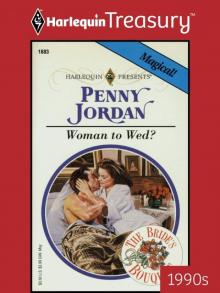 Woman To Wed?
Woman To Wed? Wanting
Wanting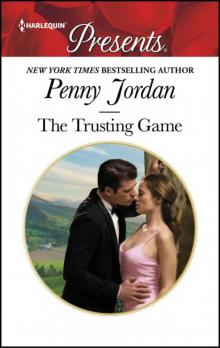 The Trusting Game (Presents Plus)
The Trusting Game (Presents Plus)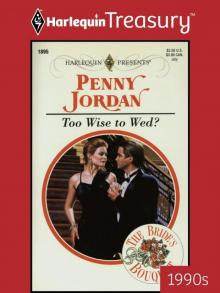 Too Wise To Wed?
Too Wise To Wed? Time for Trust
Time for Trust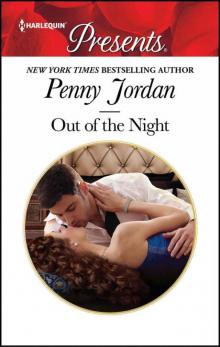 Out 0f The Night (HQR Presents)
Out 0f The Night (HQR Presents) Dangerous Interloper (Lessons Learned II Book 8; HQR Presents Classic)
Dangerous Interloper (Lessons Learned II Book 8; HQR Presents Classic)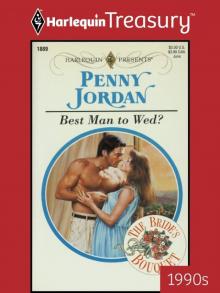 Best Man To Wed?
Best Man To Wed? They're Wed Again
They're Wed Again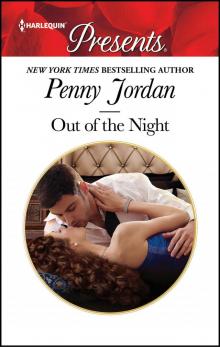 Out of the Night
Out of the Night An Innocent's Surrender
An Innocent's Surrender Marriage: To Claim His Twins
Marriage: To Claim His Twins Deal With the Devil--3 Book Box Set
Deal With the Devil--3 Book Box Set Matter of Trust
Matter of Trust Vacation with a Commanding Stranger
Vacation with a Commanding Stranger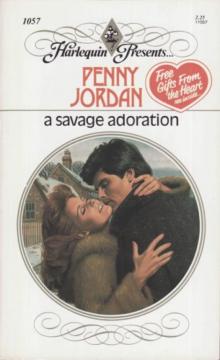 A Savage Adoration
A Savage Adoration The Mistress Purchase
The Mistress Purchase Reclaimed by the Ruthless Tycoon
Reclaimed by the Ruthless Tycoon The Tycoon's Forbidden Temptation
The Tycoon's Forbidden Temptation Sinful Nights: The Six-Month MarriageInjured InnocentLoving
Sinful Nights: The Six-Month MarriageInjured InnocentLoving Bedding His Virgin Mistress
Bedding His Virgin Mistress Escape from Desire
Escape from Desire Claiming His Shock Heir
Claiming His Shock Heir Stronger than Yearning
Stronger than Yearning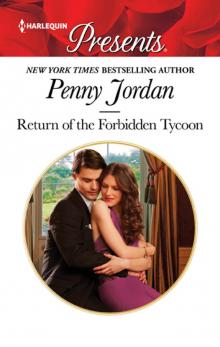 Return of the Forbidden Tycoon
Return of the Forbidden Tycoon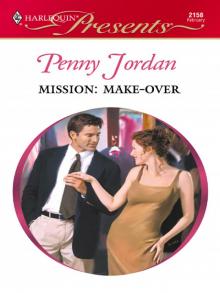 Mission: Make-Over
Mission: Make-Over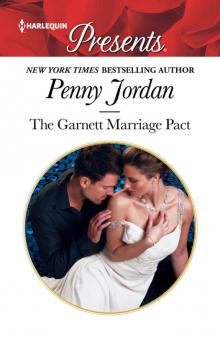 The Garnett Marriage Pact
The Garnett Marriage Pact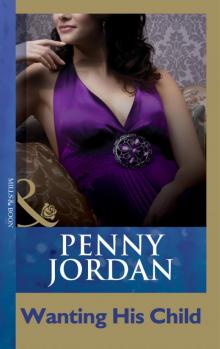 Wanting His Child
Wanting His Child A Little Seduction Omnibus
A Little Seduction Omnibus The City-Girl Bride
The City-Girl Bride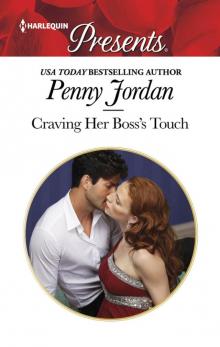 Craving Her Boss's Touch
Craving Her Boss's Touch Starting Over
Starting Over Phantom Marriage
Phantom Marriage The Italian Duke's Virgin Mistress
The Italian Duke's Virgin Mistress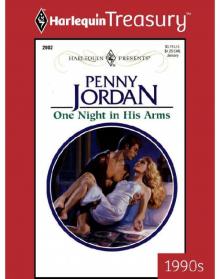 One Night in His Arms
One Night in His Arms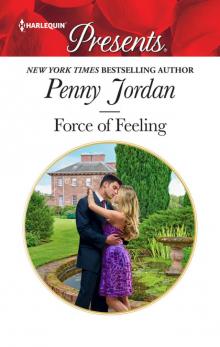 Force of Feeling
Force of Feeling Forbidden Loving
Forbidden Loving For Better for Worse
For Better for Worse Silver
Silver Rival Attractions & Innocent Secretary...Accidentally Pregnant
Rival Attractions & Innocent Secretary...Accidentally Pregnant A Bride for His Majesty s Pleasure
A Bride for His Majesty s Pleasure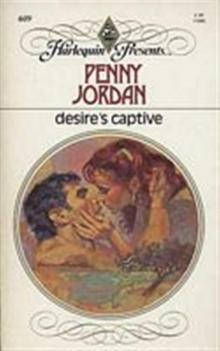 Desire's Captive
Desire's Captive Forgotten Passion
Forgotten Passion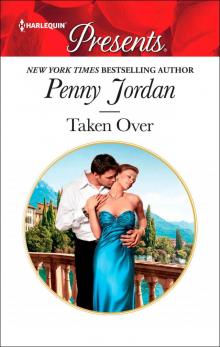 Taken Over
Taken Over Taken by the Sheikh
Taken by the Sheikh Sicilian Nights Omnibus
Sicilian Nights Omnibus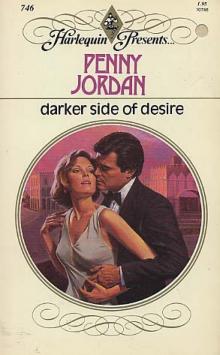 Darker Side Of Desire
Darker Side Of Desire A Royal Bride at the Sheikh s Command
A Royal Bride at the Sheikh s Command The Ultimate Surrender
The Ultimate Surrender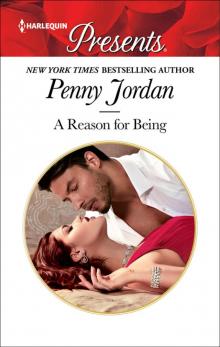 A Reason for Being
A Reason for Being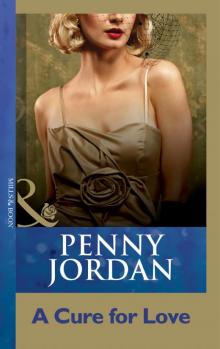 A Cure for Love
A Cure for Love Bought with His Name & the Sicilian's Bought Bride
Bought with His Name & the Sicilian's Bought Bride Marriage Make-Up & an Heir to Bind Them
Marriage Make-Up & an Heir to Bind Them Bitter Betrayal
Bitter Betrayal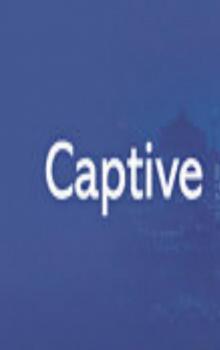 Captive At The Sicilian Billionaire’s Command
Captive At The Sicilian Billionaire’s Command Valentine's Night
Valentine's Night The Convenient Lorimer Wife
The Convenient Lorimer Wife Reawakened by His Touch
Reawakened by His Touch Substitute Lover
Substitute Lover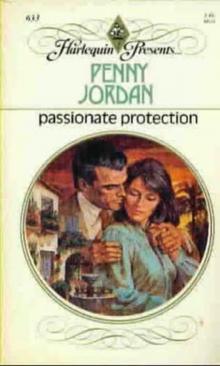 Passionate Protection
Passionate Protection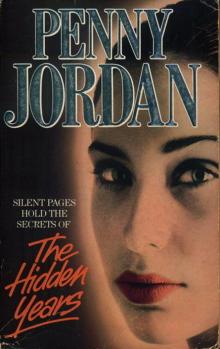 The Hidden Years
The Hidden Years So Close and No Closer
So Close and No Closer Passion and the Prince
Passion and the Prince Virgin for the Billionaire's Taking
Virgin for the Billionaire's Taking Cruel Legacy
Cruel Legacy Payment in Love
Payment in Love The Wealthy Greek's Contract Wife
The Wealthy Greek's Contract Wife Penny Jordan Collection: Just One Night
Penny Jordan Collection: Just One Night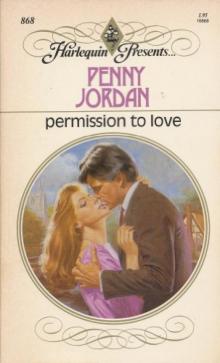 Permission to Love
Permission to Love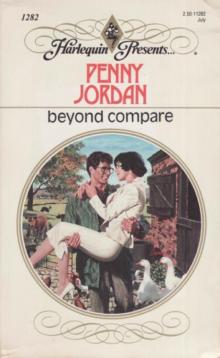 Beyond Compare
Beyond Compare When the Magnate Meets His Match
When the Magnate Meets His Match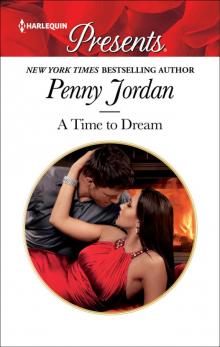 A Time to Dream
A Time to Dream Christmas Nights
Christmas Nights Christmas with Her Billionaire Boss
Christmas with Her Billionaire Boss The Sheikh's Baby Omnibus
The Sheikh's Baby Omnibus The Tycoon's Virgin
The Tycoon's Virgin Falcon's Prey
Falcon's Prey Mistress Of Convenience
Mistress Of Convenience The Perfect Father
The Perfect Father Stranger from the Past & Proof of Their Sin
Stranger from the Past & Proof of Their Sin A Little Revenge Omnibus
A Little Revenge Omnibus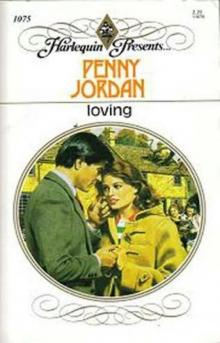 Loving
Loving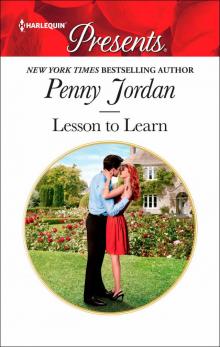 Lesson to Learn
Lesson to Learn Second Chance with the Millionaire
Second Chance with the Millionaire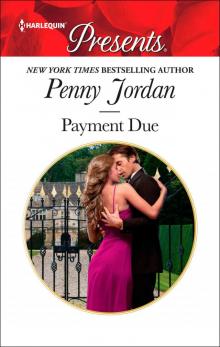 Payment Due
Payment Due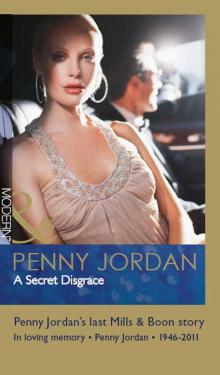 A Secret Disgrace
A Secret Disgrace Conveniently His Omnibus
Conveniently His Omnibus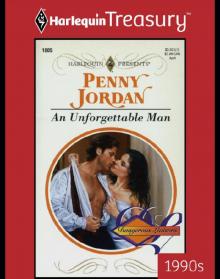 An Unforgettable Man
An Unforgettable Man The Tycoon She Shouldn't Crave
The Tycoon She Shouldn't Crave Pride & Consequence Omnibus
Pride & Consequence Omnibus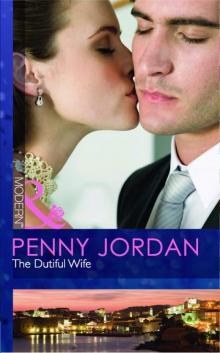 The Dutiful Wife
The Dutiful Wife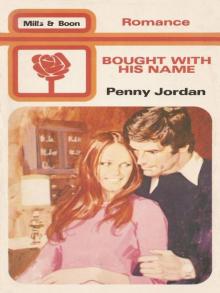 Bought With His Name
Bought With His Name The Friendship Barrier
The Friendship Barrier High Society
High Society The Price of Royal Duty
The Price of Royal Duty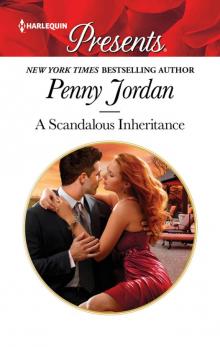 A Scandalous Inheritance
A Scandalous Inheritance At His Convenience Bundle
At His Convenience Bundle The Blackmail Baby
The Blackmail Baby Prince of the Desert
Prince of the Desert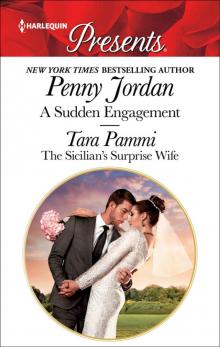 A Sudden Engagement & the Sicilian's Surprise Wife
A Sudden Engagement & the Sicilian's Surprise Wife Unexpected Pleasures
Unexpected Pleasures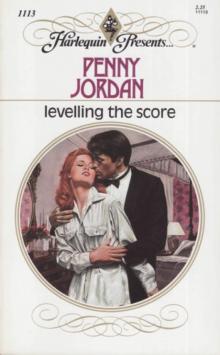 Levelling the Score
Levelling the Score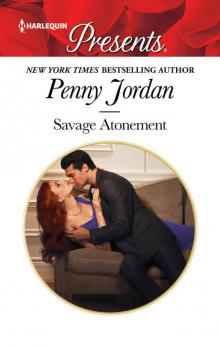 Savage Atonement
Savage Atonement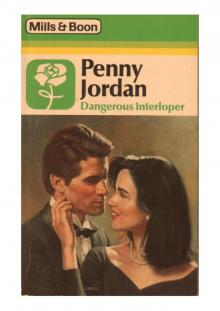 Dangerous Interloper
Dangerous Interloper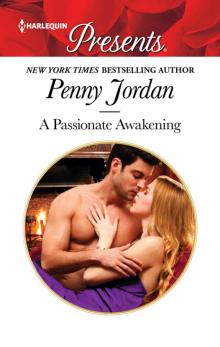 A Passionate Awakening
A Passionate Awakening Ruthless Passion
Ruthless Passion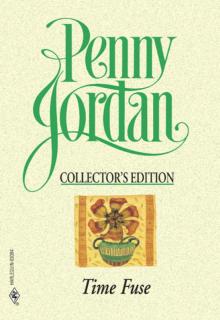 Time Fuse
Time Fuse Past Passion
Past Passion Her One and Only
Her One and Only The Innocent's Secret Temptation
The Innocent's Secret Temptation A Stormy Spanish Summer
A Stormy Spanish Summer The Marriage Demand
The Marriage Demand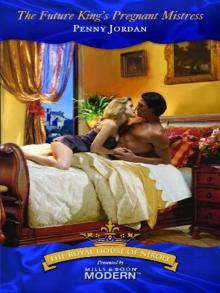 Future King's Pregnant Mistress
Future King's Pregnant Mistress Unwanted Wedding
Unwanted Wedding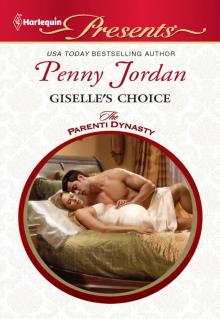 Giselle's Choice
Giselle's Choice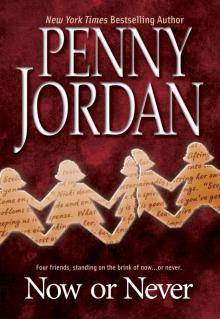 Now or Never
Now or Never Blackmailed by the Vengeful Tycoon
Blackmailed by the Vengeful Tycoon Lovers Touch
Lovers Touch Scandalous Seductions
Scandalous Seductions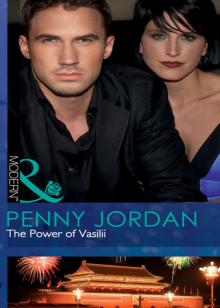 The Power of Vasilii
The Power of Vasilii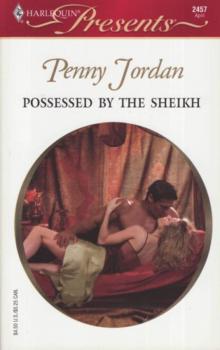 Possessed by the Sheikh
Possessed by the Sheikh It Happened At Christmas (Anthology)
It Happened At Christmas (Anthology) The Perfect Lover
The Perfect Lover The Flawed Marriage
The Flawed Marriage The Greek's Runaway Bride
The Greek's Runaway Bride An Unbroken Marriage
An Unbroken Marriage Hired by the Playboy
Hired by the Playboy The Blackmail Marriage
The Blackmail Marriage Daughter of Hassan
Daughter of Hassan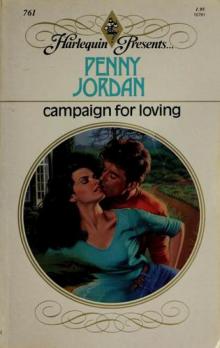 Campaign For Loving
Campaign For Loving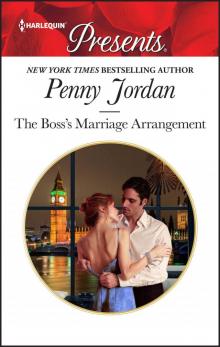 The Boss's Marriage Arrangement
The Boss's Marriage Arrangement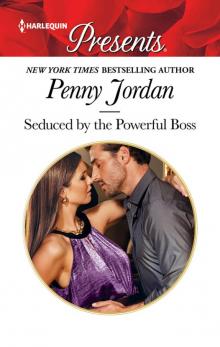 Seduced by the Powerful Boss
Seduced by the Powerful Boss Marriage Without Love & More Than a Convenient Marriage?
Marriage Without Love & More Than a Convenient Marriage?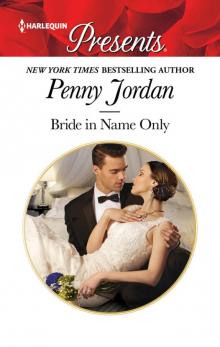 Bride in Name Only
Bride in Name Only Her Shock Pregnancy Secret
Her Shock Pregnancy Secret Propositioned in Paradise
Propositioned in Paradise The Only One
The Only One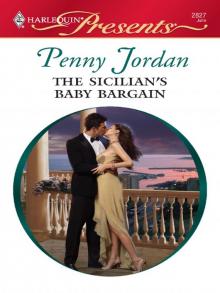 The Sicilian s Baby Bargain
The Sicilian s Baby Bargain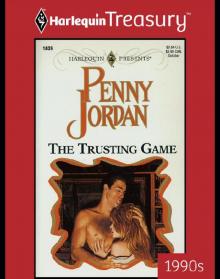 The Trusting Game
The Trusting Game The Most Coveted Prize
The Most Coveted Prize One-Click Buy: September Harlequin Presents
One-Click Buy: September Harlequin Presents In Her Enemy's Bed
In Her Enemy's Bed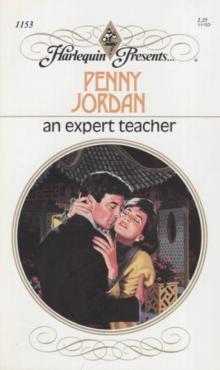 An Expert Teacher
An Expert Teacher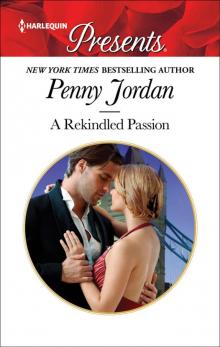 A Rekindled Passion
A Rekindled Passion The Reluctant Surrender
The Reluctant Surrender Shadow Marriage
Shadow Marriage A Scandalous Innocent
A Scandalous Innocent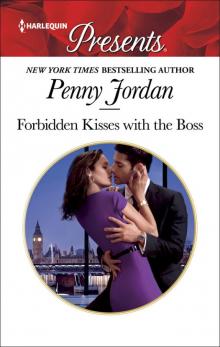 Forbidden Kisses with the Boss
Forbidden Kisses with the Boss Bound Together by a Baby
Bound Together by a Baby Second-Best Husband
Second-Best Husband Response
Response His Untouched Bride
His Untouched Bride A Kind of Madness
A Kind of Madness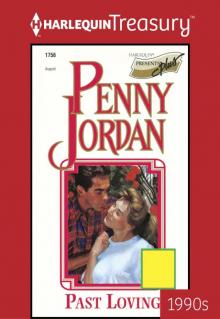 Past Loving
Past Loving His Blackmail Marriage Bargain
His Blackmail Marriage Bargain For One Night
For One Night Legally His Omnibus
Legally His Omnibus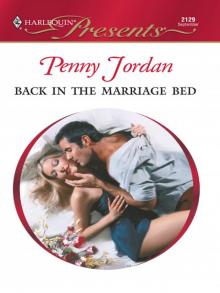 Back in the Marriage Bed
Back in the Marriage Bed Man-Hater
Man-Hater